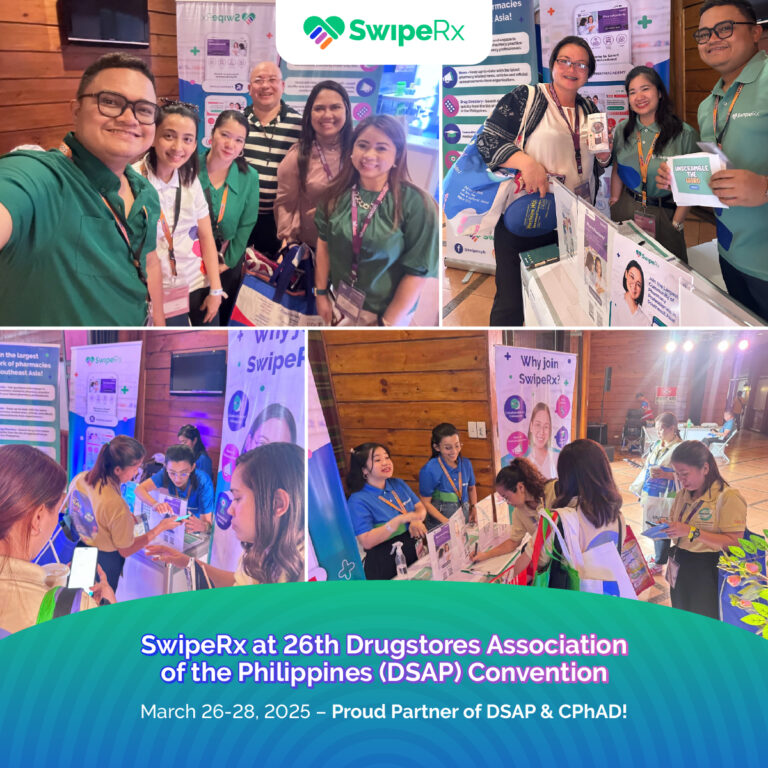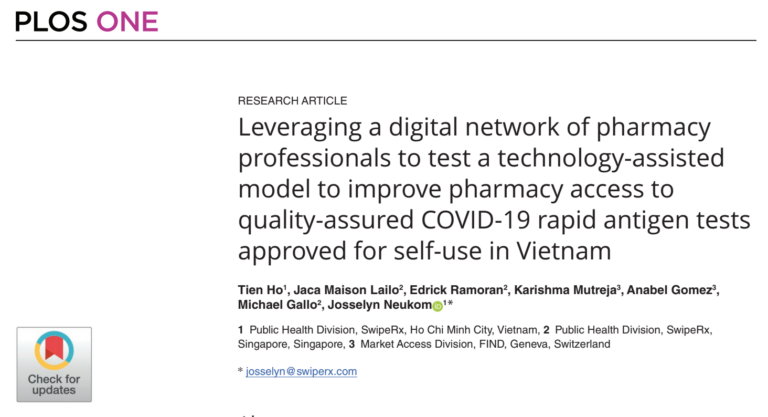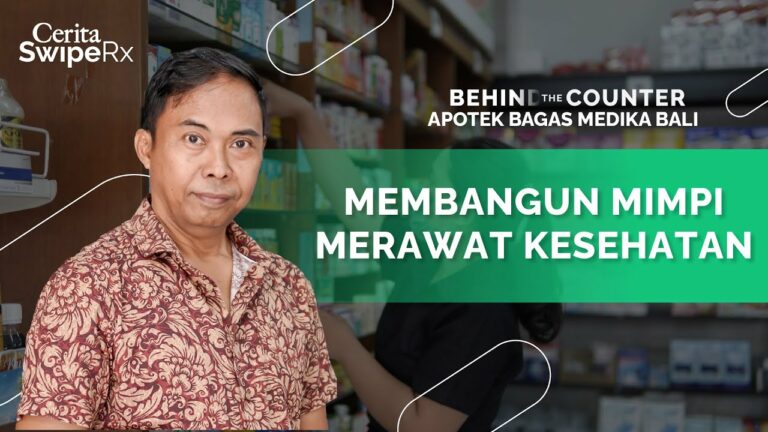Pharmacists are the first point of access to modern medical advice and treatment for many people, especially the poor and the rural. Pharmacies are widespread; a village may not have a hospital, but there definitely will be someone selling medicines. Educating and empowering pharmacy professionals is key to improving health in rural areas.

Residents of rural areas face many challenges in getting healthcare, including remote geographic location, shortages of available healthcare professionals, and financial constraints. It is important to understand the barriers affecting a specific population in order to best provide consistent, high-quality access to medical care. Improving access to care in rural Southeast Asia in particular begins with a focus on meeting the needs of Southeast Asian pharmacy professionals.
1. Improve providers’ ability to counsel patients
Patients in rural areas may hesitate to seek health resources out of privacy concerns. Life in small rural communities often entails a lack of anonymity, which would be further exacerbated by seeking services in a specialized clinic. This is a key reason why many people seek treatment at a pharmacy rather than at another healthcare center – they are more confidential. But pharmacists need training on properly and confidentially counseling their patients, especially for sensitive issues.
Throughout Southeast Asia, pharmacy professionals are already bridging gaps in health knowledge and medical access as trusted sources of information. Southeast Asian pharmacy professionals often operate out of small, independently owned shops close to home, and thus are the ideal source of both access to healthcare as well as health-related information. And now, using platforms like mClinica’s SwipeRx, pharmacy professionals have access to a wealth of free and accurate drug and health information straight from their mobile phones. They can also take accredited continuing education modules on patient counseling to improve trust and the patients’ health outcomes.
2. Harness collaboration among existing players and technology
Although there may be an existing network of available resources within Southeast Asian countries in the form of medical professionals, clinics and hospitals, public health programs, and NGOs, patients may be unfamiliar with what resources are available. Collaboration among disparate groups can bring specific expertise to a wider audience.
Pharmacy professionals may already act as coordinators of care by building relationships with customers and asking about health history, symptoms, and any existing or recent treatments, as well as recommending treatment outside of what may be available at the pharmacy.
Pharmacy professionals can improve the affordability and adherence of medicines by enrolling their patients in mClinica’s Connect platform, which send patients health education and refill reminder messages to their cellphones and provides them with discounts on medicines up to 35%. It links pharmaceutical companies, pharmacists, and patients together to improve health. Because it uses mobile phones, patients in rural areas can easily benefit from Connect.
3. Connect resources between rural areas and cities
At the end of the day, pharmacists are critical in delivering medical advice and counseling to patients in rural areas – there simply may not be enough doctors or other well-trained health professionals in remote communities.
Patients need to be aware of more specialized programs and health campaigns through pharmacy professionals. The SwipeRx platform enables pharmacy professionals to connect with institutions like the WHO, NGOs, and universities; find out about health-related events; and use telepharmacy to answer questions that are difficult to assess with local resources that may then be shared with patients, increasing quality of care by improving access to healthcare.
By improving pharmacists’ ability to counsel patients, harnessing collaboration among existing providers and technology, and focusing on removing barriers we can improve access to healthcare in rural areas.
You might be interested in:
Floods in Jakarta – A healthcare priority
In Southeast Asia, patients aren’t finishing their TB medications. Why?







